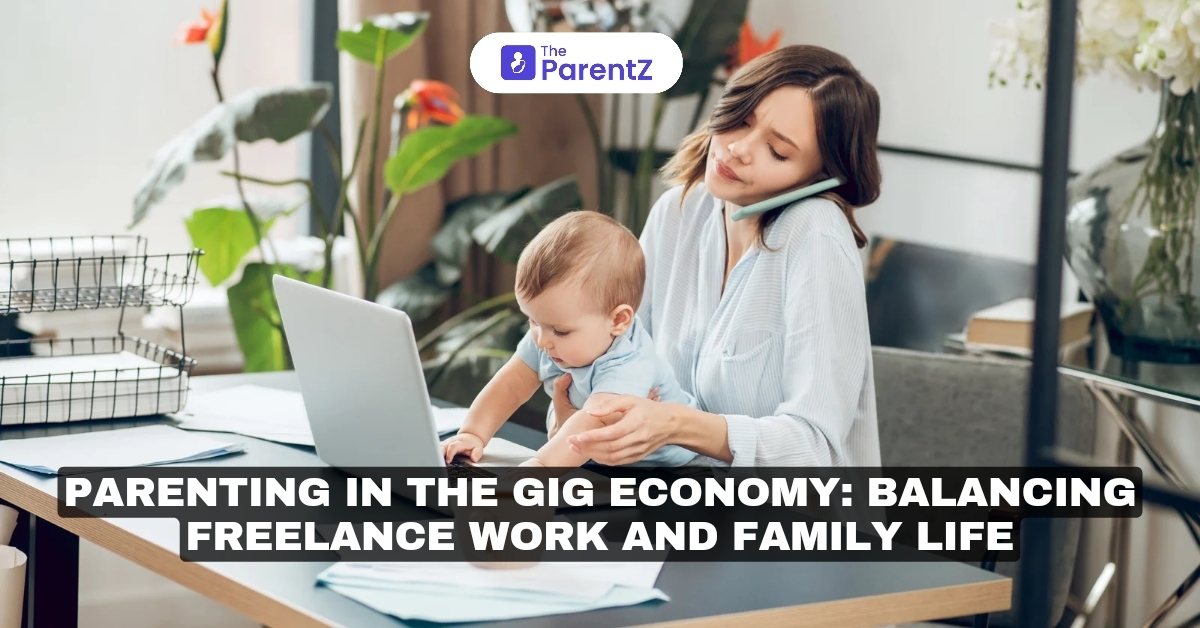The gig economy has transformed the workforce, providing flexibility and independence for workers. However, for parents, it introduces a unique set of challenges when balancing freelance work and family life. Unlike traditional jobs, freelance work often lacks structure, making it difficult to establish boundaries between professional and personal responsibilities. This article will explore how parents can thrive in the gig economy while managing family obligations.
What is the Gig Economy?
The gig economy refers to a labor market characterized by short-term contracts or freelance work, rather than permanent jobs. Popular platforms like Uber, Upwork, and Fiverr have enabled millions to find work on their terms. For parents, this model can offer flexibility that’s hard to find in a traditional 9-to-5 role. However, this flexibility often comes at the cost of unpredictability, lack of benefits, and blurred lines between work and home life.
The Appeal of Freelance Work for Parents
Freelance work offers several advantages for parents, including:
- Flexible schedules: Freelancers can set their hours, allowing them to attend school events, doctor’s appointments, and spend more time with their children.
- Work-life balance: The ability to work from home can save commuting time and provide more opportunities for family interaction.
- Diverse income streams: Freelancers can diversify their work portfolio, taking on multiple projects to ensure financial stability.
Despite these benefits, parents in the gig economy often struggle with the lack of boundaries between work and family life.
Challenges in Balancing Freelance Work and Parenting
- Inconsistent Work Hours: Unlike traditional jobs, freelance gigs often require parents to work odd hours, including late nights and weekends. This inconsistency can disrupt family routines and make it difficult to maintain a work-life balance. Children may struggle to understand why their parent is working during family time, and without clear boundaries, parents may feel overwhelmed by the demands of both work and home.
- Financial Instability: The gig economy is notorious for its lack of stability. Freelancers face fluctuating income, with no guarantees of future work. For parents, this can lead to stress and anxiety, as they must ensure that they can provide for their family, even during slow periods.
- Lack of Benefits: Freelancers don’t receive traditional benefits like health insurance, paid time off, or retirement plans. This can be particularly challenging for parents, who may need to navigate the additional costs of healthcare, childcare, and other family expenses without employer support.
- Blurred Boundaries Between Work and Family Life: One of the biggest challenges for parents in the gig economy is the lack of separation between their work life and personal life. Freelancers often work from home, which means their workspace can also be their family space. This overlap can lead to distractions, difficulty focusing, and an inability to “switch off” from work mode.
Strategies for Balancing Freelance Work and Family Life
To succeed in the gig economy, parents must be intentional about setting boundaries and creating routines that support both their work and family life. Here are some strategies:
- Establish a Work Schedule: Creating a consistent work schedule can help manage expectations for both the freelancer and their family. Set designated work hours and stick to them. This allows children to know when they can expect quality time with their parent and when their parent will be working.
- Designate a Workspace: Having a dedicated workspace, even if it’s a corner of a room, can help create physical boundaries between work and family life. When in the workspace, parents can focus on their tasks, and when they leave, they can fully engage with their family.
- Outsource Where Possible: Freelancers, like small business owners, should consider outsourcing tasks where they can. Hiring virtual assistants for administrative tasks, delegating household chores, or utilizing meal delivery services can free up valuable time that parents can spend with their children.
- Take Time for Self-Care: The gig economy can lead to burnout, especially for parents juggling multiple responsibilities. It’s essential to prioritize self-care by setting aside time to recharge. This could mean taking a break during the day, engaging in hobbies, or exercising to relieve stress.
Conclusion
Balancing freelance work and family life is challenging but achievable. By setting clear boundaries, creating routines, and embracing flexibility, parents in the gig economy can thrive both professionally and personally.





Be the first one to comment on this story.